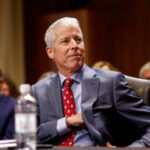Energy News Beat
Cheniere made the final investment decision on the CCL Stage 3 expansion project, worth about $8 billion, in June 2022.
The project includes building seven midscale trains, each with an expected liquefaction capacity of about 1.49 mtpa, adding to the three operational trains, each with a capacity of about 5 mtpa.
In March, Cheniere’s EPC partner, Bechtel, turned over care, custody, and control of CCL Stage 3 Train 1 and associated systems to Cheniere ahead of schedule.
Cheniere is now nearing the introduction of gas to the second train of the Corpus Christi Stage 3 expansion project and the start of LNG production.
During Cheniere’s first-quarter earnings call on May 8, Fusco said that Cheniere continues to expect the first three trains to be substantially completed by the end of 2025.
“In fact, recent progress on-site, particularly on trains 3 and 4, has increased my confidence in that target, as well as the likelihood that we’ll have train 4 in commissioning by the end of this year as well,” he said.
“Train 2 is well into the commissioning phase at this point, and I expect to achieve first LNG around the end of this month or early next. We’ve been able to deploy significant lessons learned from our commissioning and early operations of train 1 into train 2 and expect the subsequent trains to benefit from these learnings and efficiencies, as we bring them into operations,” Fusco said.
In addition to this expansion, Cheniere received approval from FERC in March to build two more midscale trains at its Corpus Christi LNG plant.
Cheniere recently sought and won approval from FERC to start site preparation activities for the trains.
The proposed midscale trains 8 and 9 project includes adding two midscale
liquefaction trains, each with an expected liquefaction capacity of about 1.49 mtpa, and associated facilities, as well as increasing the authorized loading rate at the terminal’s existing marine berth.
In February, Fusco confirmed that the company still expects to make FID to build two more midscale trains at its Corpus Christi LNG plant this year.
Cheneiere previously issued LNTPs (limited notices to proceed) to Bechtel, which “help lock in costs and schedule ahead of FID worth over $500 million,” he said during the call.
“With the majority of the total cost of trains 8 and 9 expected to be labor and a fair amount of equipment and materials sourced domestically, we don’t anticipate a material impact on the cost of midscale trains 8 and 9 in any of our scenario modeling,” Fusco said.
Fusco said the recent focus on trade balances and tariffs have highlighted the “outsized impact that LNG contracts can have on those dynamics, given the absolute dollar magnitude in the tenure of our agreements as well as the fact that we have signed contracts with companies in nearly 20 different countries.”
“We believe that reality only further improves the backdrop for constructive dialogue with LNG buyers around the world,” he said.
Together with identified debottlenecking opportunities across all trains, Cheneire expects trains 8 and 9 to add up to approximately 5 mtpa of volume to its platform at Corpus Christi, increasing the company’s overall capacity to about 16 mmtpa
He said Cheniere is “very close to having the necessary regulatory approvals to move forward in the coming months.”
In addition, Cheniere is currently working together with Bechtel to finalize the EPC agreement, which “we expect to execute in the near-term as well as other remaining project development pieces falling into place, ensuring the project meets or exceeds our disciplined capital investment parameters and return requirements.”
“These actions are evidence that we are in very late stages of development on trains 8 and 9, and we are excited to bring this brownfield expansion project to FID soon,” Fusco said.
Fusco also discussed the evolving landscape around trade and tariffs and how Cheniere is positioned.
“Certainly, the last few weeks have been marked by volatility and some confusion around tariffs and trade as announcements and proclamations from here and abroad have come in rapid-fire succession,” he said.
“The underlying issues and the developing policies to address them have raised questions from our investors, customers, and other stakeholders regarding the potential impact on the physical LNG market and the LNG contracting environment, as well as the cost of materials and equipment,” Fusco said.
“As a result, over the last few weeks, I’ve spent significant time in Washington DC meeting with the leadership of multiple departments and agencies and providing the perspective of Cheniere and the US LNG industry in policy discussions around those key issues,” he said.
“From these meetings, it is clear that the administration strongly supports our industry, and they understand the significant role LNG can play in the support of the administration’s energy dominance agenda and trade priorities and the importance and durability of our permits long-term,” he said.
“With regard to the physical market, the destination flexibility inherent in US LNG contracts, which Cheniere pioneered, is a significant mitigant of impacts to physical flows of volume. Even so, we are uniquely insulated from volatility in the short-term market via our highly contracted business model, the overwhelming majority of which is FOB. Any potential impact is further mitigated by the depth and the physical liquidity of the LNG market today, with well over 40 importing markets and regasification capacity that continues to grow well in excess of supply, LNG volumes can respond to signals and reach the markets, where it is most economic,” Fusco said.
The post Cheniere nears first LNG at second Corpus Christi expansion train appeared first on Energy News Beat.









